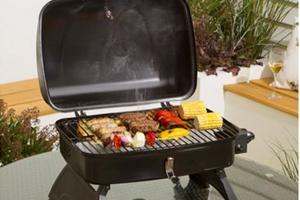Media Release - Springing into the Barbecue Season
Springing into the Barbecue Season
FOR IMMEDIATE RELEASE (Toronto, ON, April 3, 2006) - Longer days, clocks moving one hour ahead and warmer temperatures all are signs that spring is in the air and with that the beginning of the main barbecue season. Few things can match the enjoyment of a barbecue with family and friends. Practising sensible and safe barbecuing will help ensure that your get-together is a sizzling success.
While many people barbecue throughout the year, safety experts with the Technical Standards and Safety Authority (TSSA) recognize rolling out the barbecue is a sure sign that spring has arrived in Ontario. Similar to other spring rituals, the BBQ “season opener” should include a three-step safety check:
- Clean: use a pipe cleaner or wire to make sure the burner ports are free of rust, dust, dirt, spider webs or other debris.
- Check: examine the hose leading from the fuel supply to the burners. Replace if cracked or damaged.
- Test: find leaks by applying a 50/50 solution of water and dish soap to all fuel and hose connections. If bubbles appear, tighten the connections and/or replace the damaged parts and always re-test.
In addition to these opening season safety checks, BBQ enthusiasts are reminded that barbecues are approved for outdoor use only. They emit carbon monoxide, an odourless, colourless poisonous gas that can lead to serious health affects even death.
Propane cylinders must also be safely stored and transported. Do not use or store your cylinders inside any structure. When transporting the cylinder always keep it upright and do not put the cylinder in a closed vehicle or in the trunk. It is preferable to transport the cylinder on the floor of the passenger compartment.
Using propane BBQs on the Balcony: Yes or No?
Many Ontarians live in apartments and condominiums and should be aware of additional safety issues and restrictions regarding the use of barbecues on balconies. Barbecue use may be prohibited by the Condominium Act of your building or prohibited by the building owner or property manager, so ensure you have determined what restrictions are in place for your building. If barbecues are permitted in your building, there are still some regulations governing the storage and use of propane in Ontario on balconies:
- the balcony is open (no closures or walls have been erected);
- cylinders are transported in a service elevator or when there are no service elevators, the person must use the passenger elevator alone to transport the cylinder;
- cylinders are kept outdoors;
- the barbecue is kept clear of all combustible materials listed on its rating plate or in the certified instructions; and
- the cylinder relief valve is at least one metre horizontally from any building opening below it, and three metres from a building air intake.
Remember once again that barbecues are only approved for outdoor use. It is always better to be safe, so if you are uncertain about the condition or any part of your barbecue, including your propane cylinder, replace it with a new component. Parts are readily available at most hardware stores and building centres. If you are uncomfortable performing safety checks and repairs on your propane or natural gas barbecue yourself, please contact a certified fuel-appliance technician. All technicians must be certified by TSSA. If you are unsure if your contractor is registered you can contact TSSA at 1-800-682-8772 www.tssa.org .
More information on barbecue safety and many other topics is available at TSSA’s safety website, www.safetyinfo.ca
About TSSA
TSSA is an innovative, self-funded, non-government organization focused on delivering public safety services. It provides not-for-profit regulatory safety services in industry sectors such as amusement devices, boilers and pressure vessels, elevating devices, natural gas, petroleum, propane fuels and equipment, operating engineers, and upholstered and stuffed articles. The corporation’s vision is to be the world leader in public safety services. For more information about the Technical Standards and Safety Authority, please visit our website at www.tssa.org
-30-
For more information, please contact:
Ima Kalos, Communications Advisor, TSSA
Telephone: (416) 734-TSSA (8772) or 1-877-682-8772
Email: media@tssa.org

